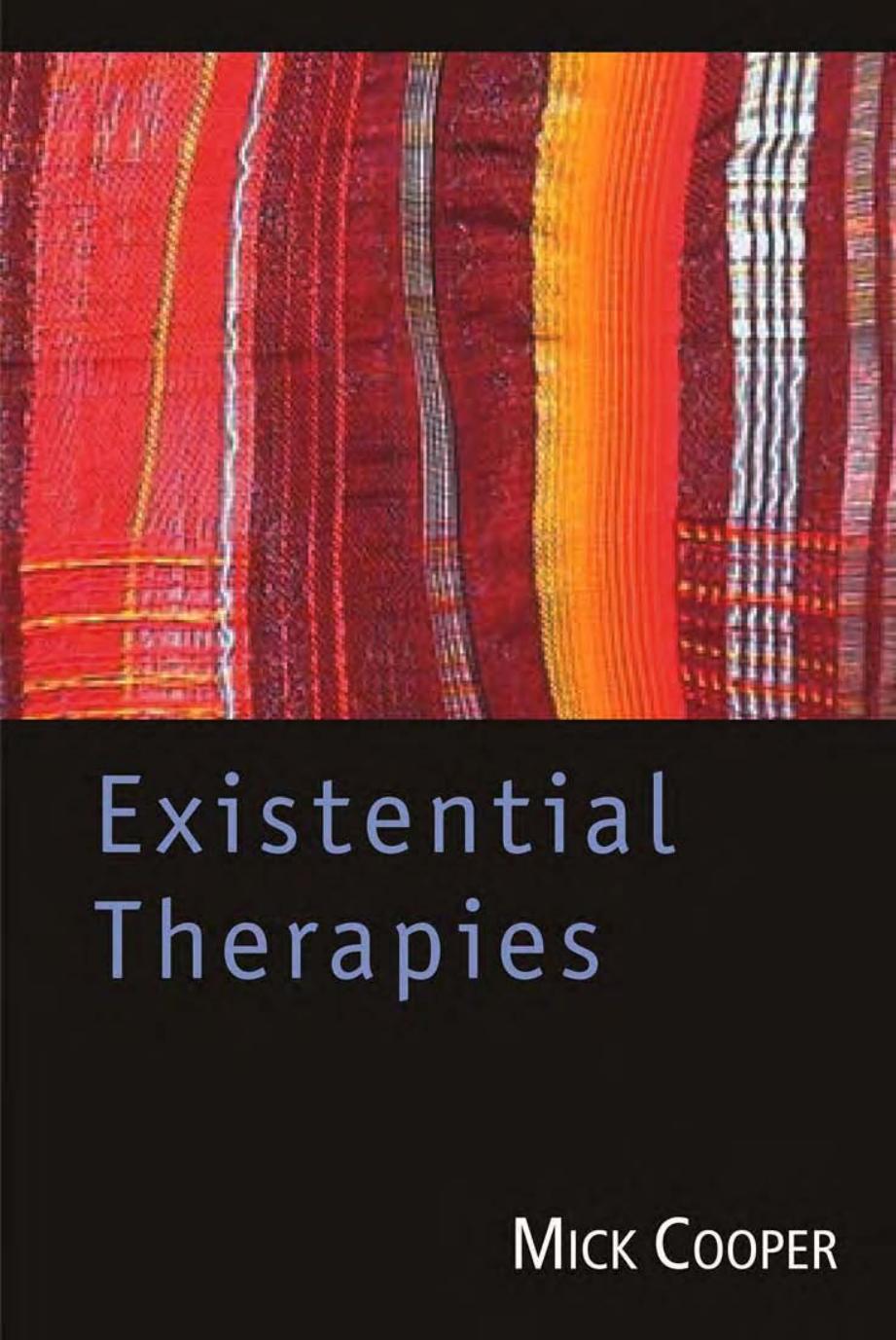Existential Therapies by Mick Cooper

Author:Mick Cooper
Language: eng
Format: mobi, pdf
Publisher: SAGE Publications
Published: 2016-10-17T15:00:00+00:00
Confronting meaninglessness
A fourth existential given identified by Yalom (1980) and Bugental (1981) is that of meaninglessness. Yalom, drawing heavily from the work of Frankl (see Chapter 4), argues that human beings are fundamentally meaning-seeking creatures. In contrast to Frankl, however, both he and Bugental – though not all existential-humanistic practitioners (L. Hoffman, personal communication, 3 February 2016) – hold that human beings must face up to the ultimate meaningless of their existence: ‘that there exists no “meaning”, no grand design in the universe, no guidelines for living other than those the individual creates’ (Yalom, 1980: 423). On this basis, then, an existential-humanistic approach to meaninglessness might highlight the way in which individuals tend to defend themselves against an awareness of this given – for instance, by throwing themselves into mindless pursuits or crusading for a cause – and how these defences fail to really stem the sense of nihilism, absurdity and despair (Bugental, 1981). It might also argue that if human beings can face up to the meaninglessness of their existence, they can confront it directly, and find ways of carving out their own, personal meaning in life: for instance, through altruistic acts, dedication (to a cause), creativity or hedonism (Yalom, 1980). From this standpoint, the role of therapists would be to help clients identify their defences against the anxiety of meaninglessness, and to encourage them to ‘stay with’ the awareness that there is no given meaning to their lives. Helping clients to identify the ways in which they deny meaninglessness in the therapeutic relationship – for instance, by assuming that the therapist knows what the ultimate value of therapy is – would also be an intrinsic part of this process.
Interestingly, however – and, again, in direct contrast to Frankl – Yalom suggests that the anxiety of meaninglessness may not be a primary anxiety, but a ‘“stand-in” for anxiety associated with death, groundlessness and isolation’ (1980: 470). From this perspective, people who desperately want to find some meaning in their lives may be seen as trying to find a way of transcending their deaths by leaving a legacy behind. Similarly, people may be seen as feeling that life is intrinsically meaningless because they are defended against close, loving relationships that nothing provides them with any sense of pleasure. On this basis, Yalom (1980: 462) suggests that therapists should not take clients’ statements that ‘life has no meaning’ at face value, but should ‘rigorously examine the legitimacy of the complaint’, and help clients to examine the other concerns and anxieties on which such statements may be based. Furthermore, based on the analysis that a sense of meaninglessness often comes from a lack of engagement with the world, Yalom suggests that therapists should pursue the question of meaning obliquely, helping clients to re-engage with their world and immerse themselves in the river of life.
Download
This site does not store any files on its server. We only index and link to content provided by other sites. Please contact the content providers to delete copyright contents if any and email us, we'll remove relevant links or contents immediately.
When Breath Becomes Air by Paul Kalanithi(7255)
Why We Sleep: Unlocking the Power of Sleep and Dreams by Matthew Walker(5637)
Paper Towns by Green John(4164)
The Immortal Life of Henrietta Lacks by Rebecca Skloot(3820)
The Sports Rules Book by Human Kinetics(3581)
Dynamic Alignment Through Imagery by Eric Franklin(3482)
ACSM's Complete Guide to Fitness & Health by ACSM(3459)
Kaplan MCAT Organic Chemistry Review: Created for MCAT 2015 (Kaplan Test Prep) by Kaplan(3418)
Introduction to Kinesiology by Shirl J. Hoffman(3297)
Livewired by David Eagleman(3116)
The River of Consciousness by Oliver Sacks(2989)
Alchemy and Alchemists by C. J. S. Thompson(2908)
The Death of the Heart by Elizabeth Bowen(2896)
Descartes' Error by Antonio Damasio(2728)
Bad Pharma by Ben Goldacre(2722)
The Gene: An Intimate History by Siddhartha Mukherjee(2488)
Kaplan MCAT Behavioral Sciences Review: Created for MCAT 2015 (Kaplan Test Prep) by Kaplan(2484)
The Fate of Rome: Climate, Disease, and the End of an Empire (The Princeton History of the Ancient World) by Kyle Harper(2430)
The Emperor of All Maladies: A Biography of Cancer by Siddhartha Mukherjee(2427)
